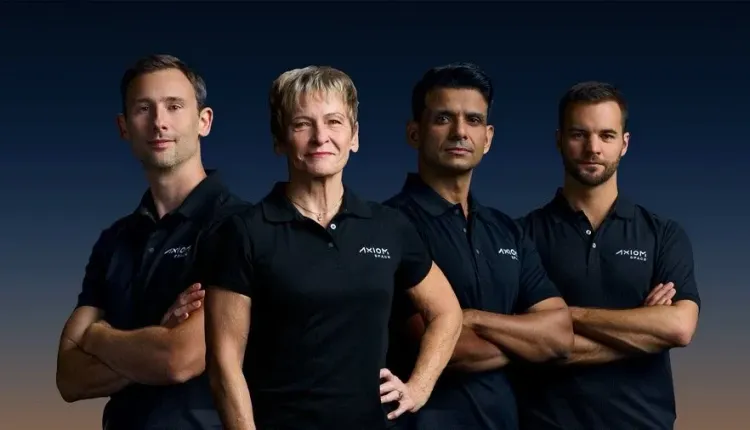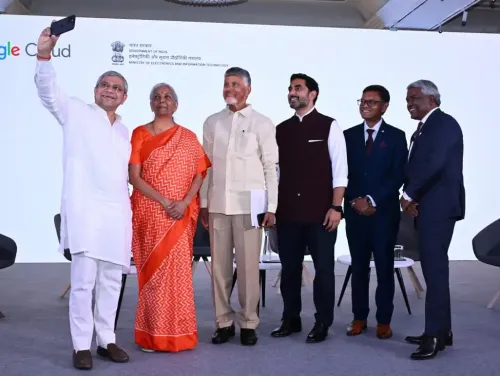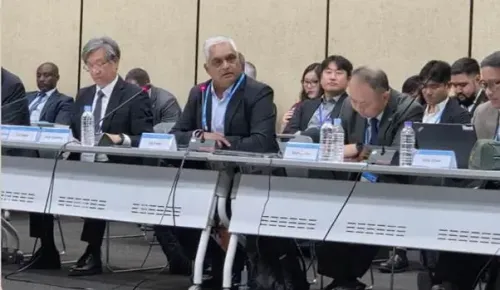Why Has the Axiom Mission 4 Launch Been Postponed Again?

Synopsis
Key Takeaways
- Axiom Mission 4 has been delayed due to technical evaluations.
- The mission is a collaboration between NASA, Axiom Space, and SpaceX.
- The launch was originally scheduled for May 29.
- The crew includes international astronauts with diverse backgrounds.
- Scientific research will focus on sustainable life-support systems.
New Delhi, June 20 (NationPress) The launch of Axiom Mission 4 (Ax-4), the fourth private astronaut mission to the International Space Station (ISS), has faced another delay as NASA and its collaborators conduct ongoing technical evaluations.
This mission, a partnership among NASA, Axiom Space, and SpaceX, will no longer take place on Sunday, June 22, with a new launch date expected to be announced shortly.
“@NASA, @Axiom_Space, and @SpaceX are assessing launch opportunities for Axiom Mission 4. NASA is postponing the launch scheduled for Sunday, June 22, and will aim for a new date in the coming days,” the International Space Station stated in a post on X.
This latest postponement follows continued evaluations of repair work on the Russian Zvezda service module’s aft section aboard the ISS.
The mission's original launch was set for May 29 from NASA’s Kennedy Space Center in Florida, but it has been rescheduled several times, first to June 8, then to June 10, June 11, and most recently June 19, leading to this latest delay.
The Ax-4 mission signifies another milestone in the expanding realm of commercial spaceflight, highlighting international collaboration and private sector innovation.
The Ax-4 crew will launch aboard a SpaceX Falcon 9 rocket from Launch Complex 39A. This mission is regarded as a vital advancement in the commercialization of human spaceflight and features a diverse, international crew led by mission commander Peggy Whitson, a former NASA astronaut and the current Director of Human Spaceflight at Axiom Space.
Joining Whitson are Shubhanshu Shukla from the Indian Space Research Organisation (ISRO) as the pilot, Sławosz Uznanski-Wisniewski from Poland, and Tibor Kapu from Hungary, both serving as mission specialists under the European Space Agency (ESA).
Throughout the mission, the crew will engage in various scientific experiments. Notably, Shukla will spearhead research on food and space nutrition, developed through a collaboration among ISRO, the Department of Biotechnology (DBT), and NASA. These studies aim to enhance sustainable life-support systems, a crucial aspect for long-duration space exploration.









